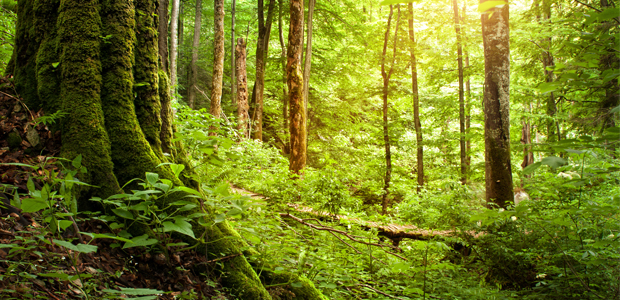Advertisement
Celebrate our Forests on World Forestry Day
When I was a teenager I had a burlap book bag that had the slogan “Save a tree, eat a beaver” printed on it. At the local urban park at the end of my street in Surrey, BC, there’s plenty of evidence of the destruction beavers can inflict on trees. This year’s theme for World … Continued

When I was a teenager I had a burlap book bag that had the slogan “Save a tree, eat a beaver” printed on it. At the local urban park at the end of my street in Surrey, BC, there’s plenty of evidence of the destruction beavers can inflict on trees. This year’s theme for World Forestry Day is biodiversity and climate change.
I’m definitely not advocating eating any beavers, but today is a great opportunity to stop and think about trees and how they help to support biodiversity, including humans. So, what do trees do for us?
Clean the air
Trees are Nature’s air filters. They absorb harmful gases such as carbon dioxide, nitrogen dioxide, and sulphur dioxide from the air, and release oxygen through their leaves for us to breathe.
Provide shade
Besides offering protection from the sun’s harmful rays, moisture that evaporates from a tree’s leaves cools the surrounding air.
Reduce noise
The physical barrier that trees provide can reduce noise levels by 3 to 8 decibels for every 30 metres of tree cover, a beautiful solution to noise reduction in busy urban centres.
Keep the ground stable
Tree roots prevent erosion and stabilize the soil.
Enrich the soil
Decaying leaves and rotting wood enrich the soil naturally.
Nurture wildlife
One mature oak tree is able to support over 460 different species of birds, insects, and animals.
Provide useful products
Protected and taken care of properly, trees provide a renewable timber resource that we use to build homes, furniture, paper, and many other products. Trees also provide us with fruit and nuts.
Provide natural remedies
White willow bark provides salicin, which modern-day Aspirin is derived from. Pacific yew bark provides a substance used to make Taxol, a drug used to treat breast, lung, and ovarian cancer.
Improve our physical and mental health
Besides the obvious benefits of exercising outdoors and breathing in fresh air, spending time in the forest has been shown to lower cortisol (stress) levels, blood pressure, and pulse rates. Studies also show an increase in positive feelings, and a decrease in negative feelings, when we spend time in a forest.
World Forestry Day celebrations are occurring all over the world. Of course, you can always take a walk and appreciate the many benefits of the forest on your own in peace and solitude. Watershed Park in Delta is my favourite urban forest. What’s yours?





